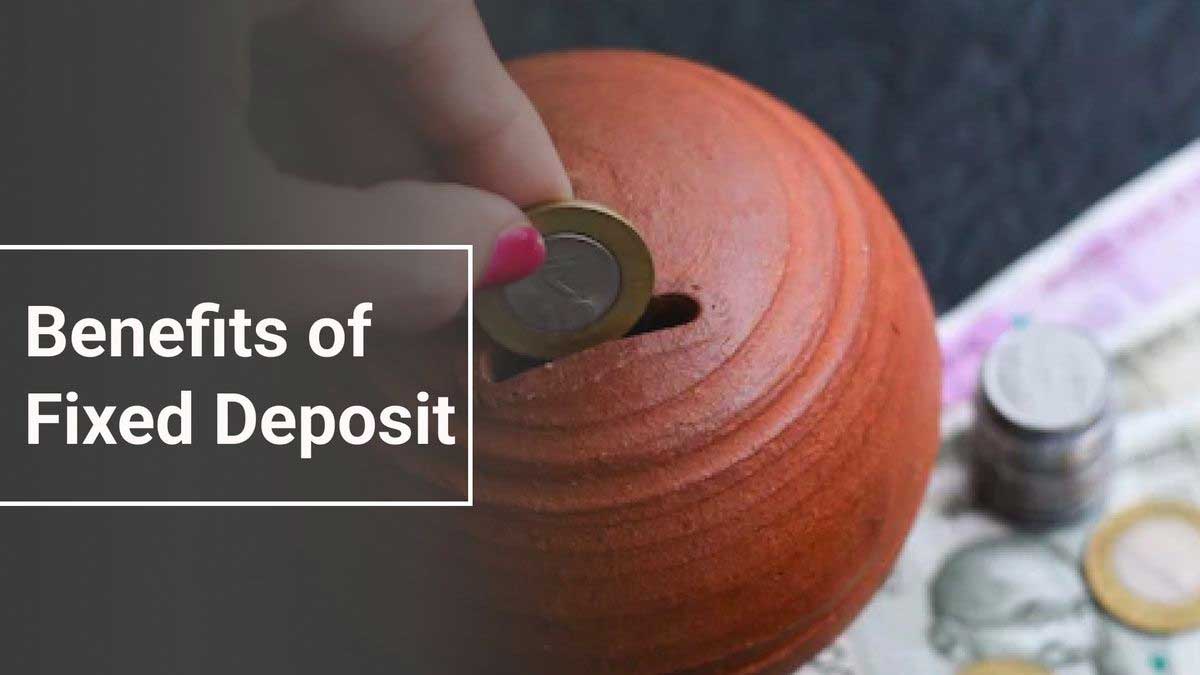What are Fixed Deposits?
An investment plan called a fixed deposit allows investors to deposit money in order to receive higher returns than they would from a savings account. Both banks and NBFCs (non-banking financial companies) provide it. People make lump-sum deposits into fixed deposits for a predetermined length of time in order to receive interest. You can decide whether you would prefer to receive interest on a periodic basis or at maturity in this case. And you must pay the early withdrawal penalty if, for any reason, you withdraw your deposited funds.
Characteristics of fixed deposits
Now that you know what fixed deposits are, it's time to study some of their features:
- One of the best aspects of FDs is the fixed rate of interest. For anyone looking to begin their financial adventure, a fixed deposit is one of the most dependable and secure investment plans because its returns are unaffected by market fluctuations.
- Renewal options and adjustable tenure: You can begin a fixed deposit for a term of one week to ten years. But remember to look into the interest on FDs before choosing any fixed deposit plan, as the rate of return is mostly dependent on the duration of the fixed deposit.
On the INDmoney platform, the Super Saver FD sponsored by SBM Bank often has the greatest interest rates. Click here for more information.
Fixed Deposits' Benefits
Because there are so many good things about fixed deposit accounts, most Indians are involved with them in some way.These are the benefits of FDs:
:
- a safe investment strategy A safe investment plan is among the most significant FD advantages. Fixed deposits are one of the instruments that are best suited for you if you are anticipating a guaranteed return on your investment because the rate of return on a fixed deposit is fixed and you will receive your principal amount back along with additional interest after a fixed term.
- Reduced risk: One of the advantages of fixed deposits is that their interest rates are not impacted by market volatility, making them a less hazardous investment.
- Access to Top-up Loans: Top-up loans are one of the FD's benefits. If you need money, you can borrow against your fixed deposit in a fixed deposit account. So, it is safe from a return perspective, but you can also use loans to turn your fixed deposit into cash.
- Seniors profit more from fixed deposit accounts than other people since they offer a high rate of interest on fixed deposits. (0.5% higher interest rate)
- offers flexibility Fixed deposits give you the choice to receive interest on a recurring basis. Here, you have the choice of selecting either monthly or quarterly interest, depending on your demands, or you may use the cumulative method and earn a lump sum when the loan is paid off.
Issues with Fixed Deposits
Even though some plans have benefits, they also have significant drawbacks. Let's examine a few disadvantages of fixed deposits:
- Locked-in money Your money will be locked in a fixed deposit for a specific amount of time. To convert your money, you must go through a different procedure. In other words, unless you remove your money, these funds won't be accessible to you.
- Repercussions for withdrawal: If at any moment you choose to make a premature withdrawal, you will be subject to fees.
- Even though fixed-rate deposits have many benefits, inflation has outpaced the rate. As a result, the interest rate does not change in tandem with inflation. Simply put, it indicates that occasionally the deposit yields less than the rate of inflation. And for this reason, fixed deposit investments are becoming less appealing to investors.
Payment of taxes on fixed deposits
The Income Tax Act of 1961 states that interest earned on fixed deposits is taxable. Depending on the investor's tax slab rate, the amount of tax deducted from fixed deposit earnings ranges from 0% to 30%.
If the interest earned on a fixed deposit exceeds Rs 10,000, TDS (tax deducted at source) will be deducted at a rate of 10%.The TDS will be 20% if you don't supply credit card information while opening a fixed deposit with the bank.
If your total income falls below the tax bracket of at least 10%, you can easily claim your exemption. But if your total income exceeds the 10% slab rate (let's say 20% or 30%), you will be able to pay additional tax on top of the usual TDS rate.
By submitting Form 15G, people can avoid taking tax deductions.
Conclusions
Fixed deposits are the most dependable and sufficient financial instruments because even those with minimal risk tolerance invest their money in them. There are no market alternatives to a fixed deposit if you want a safe return and don't want to risk your money.
Nonetheless, you must spend some time conducting your research and analysis prior to making an investment in any kind of market instrument.


